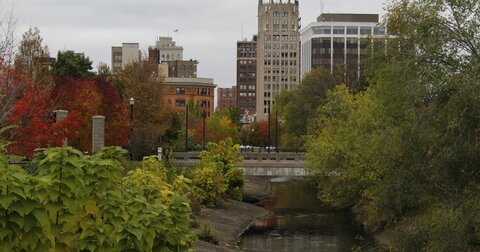Michigan taxpayers give $200,000 for NASCAR-owned race track
Racing business has $425M in corporate sponsorships
The 2025 state budget spends $200,000 on traffic control at the Michigan International Speedway, and a prominent policy advocate is waving a red flag.
“Those dollars are headed in the wrong direction,” John Mozena, president of the Center for Economic Accountability, told Michigan Capitol Confidential in an email. “It should be NASCAR compensating taxpayers for the costs its races are imposing on the surrounding community, not the other way around.”
When fans leave the speedway, state police provide traffic control services. Attendees pay admission fees, but Michigan taxpayers foot the bill for traffic control for up to 125,000 people leaving the track.
The events turn a quiet rural area into a giant traffic jam, Mozena said, and the National Association for Stock Car Auto Racing should bear the cost for traffic control.
“Last year, NASCAR reportedly brought in about $425 million in sponsorships from some of the biggest companies in the world, and it is looking to sign a new billion-dollar TV broadcast deal,” Mozena wrote. “That $200,000 from Michigan’s taxpayers is meaningless in terms of NASCAR’s corporate bottom line, and whatever legislators stuck that handout in the state’s budget should get black-flagged for being a danger to taxpayers.”
Mike McCabe, a retired undersheriff, spent more than 44 years at the Oakland County Sheriff’s Office after graduating from the Michigan State University School of Criminal Justice in 1977.
McCabe said taxpayers shouldn’t pay overtime for the track.
“We don’t subsidize Pine Knob Music Theatre for the overtime for Deputies working there as an example,” McCabe wrote to CapCon. “The Illitch family pays for ALL of the overtime there.”
A review of state budgets shows taxpayers also paid for traffic control in 2007.
When Detroit hosted the NFL draft in 2024, roughly 775,00 people attended. The city paid for and deployed the public safety strategy, John Roach, the director of media relations for the Detroit mayor’s office told Michigan Capitol Confidential in an email.
“Detroit's commitment to provide security was a central component of our successful bid for what ended up being the largest and most successful NFL draft ever, for the league, for the city and for our businesses,” Roach said.
Michigan Capitol Confidential is the news source produced by the Mackinac Center for Public Policy. Michigan Capitol Confidential reports with a free-market news perspective.


 Grand Rapids Ballet awarded $1.8M in state budget
Grand Rapids Ballet awarded $1.8M in state budget
 State taxpayers fund local infrastructure projects
State taxpayers fund local infrastructure projects
 Anti-eviction advocacy group in Detroit due to get $20M from taxpayers
Anti-eviction advocacy group in Detroit due to get $20M from taxpayers

 Flint schools get $156M in COVID funds, ask for debt relief
Flint schools get $156M in COVID funds, ask for debt relief
 Whitmer creates second Michigan education department
Whitmer creates second Michigan education department
 Michigan Education board member claims funding cuts after record funding
Michigan Education board member claims funding cuts after record funding